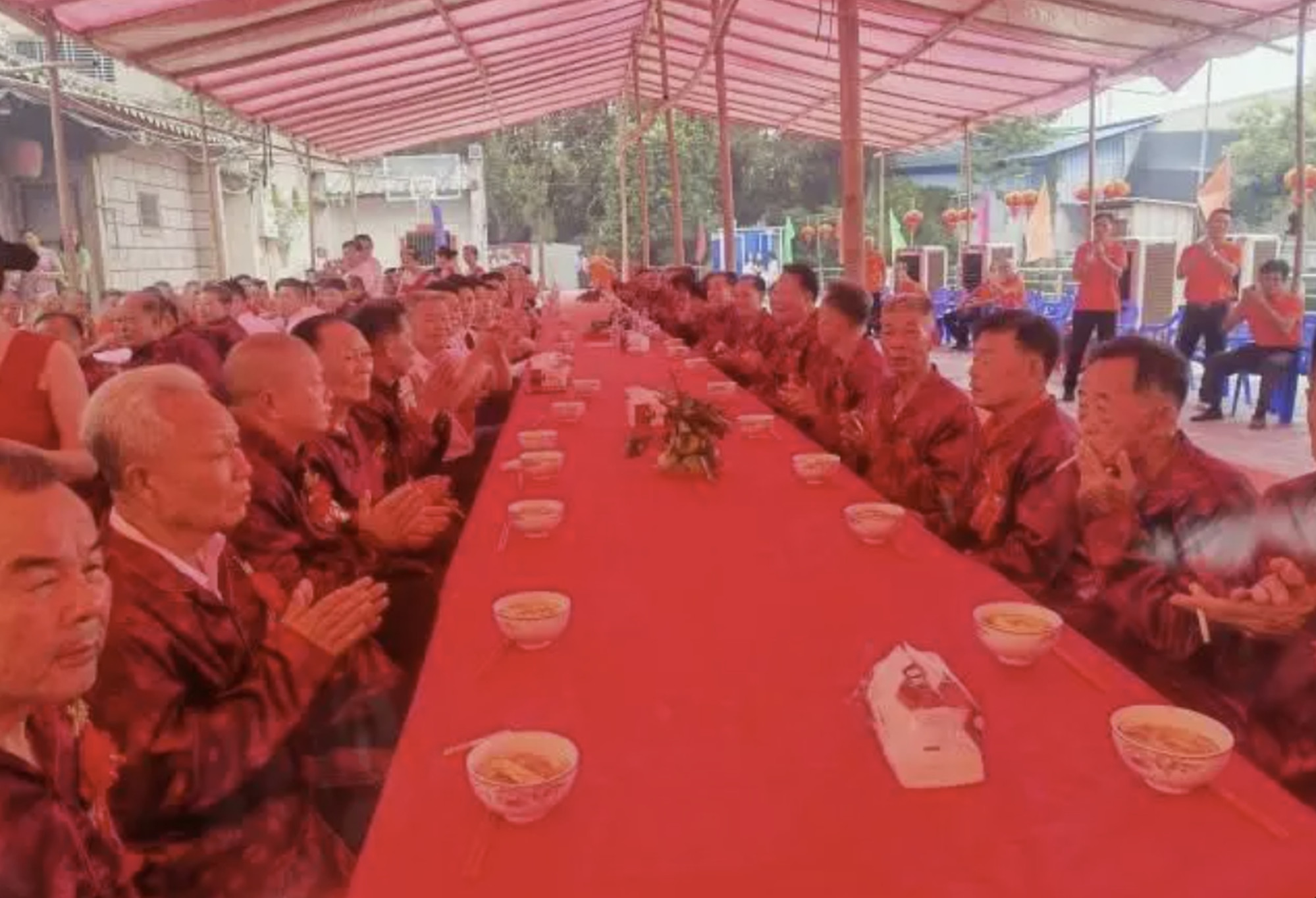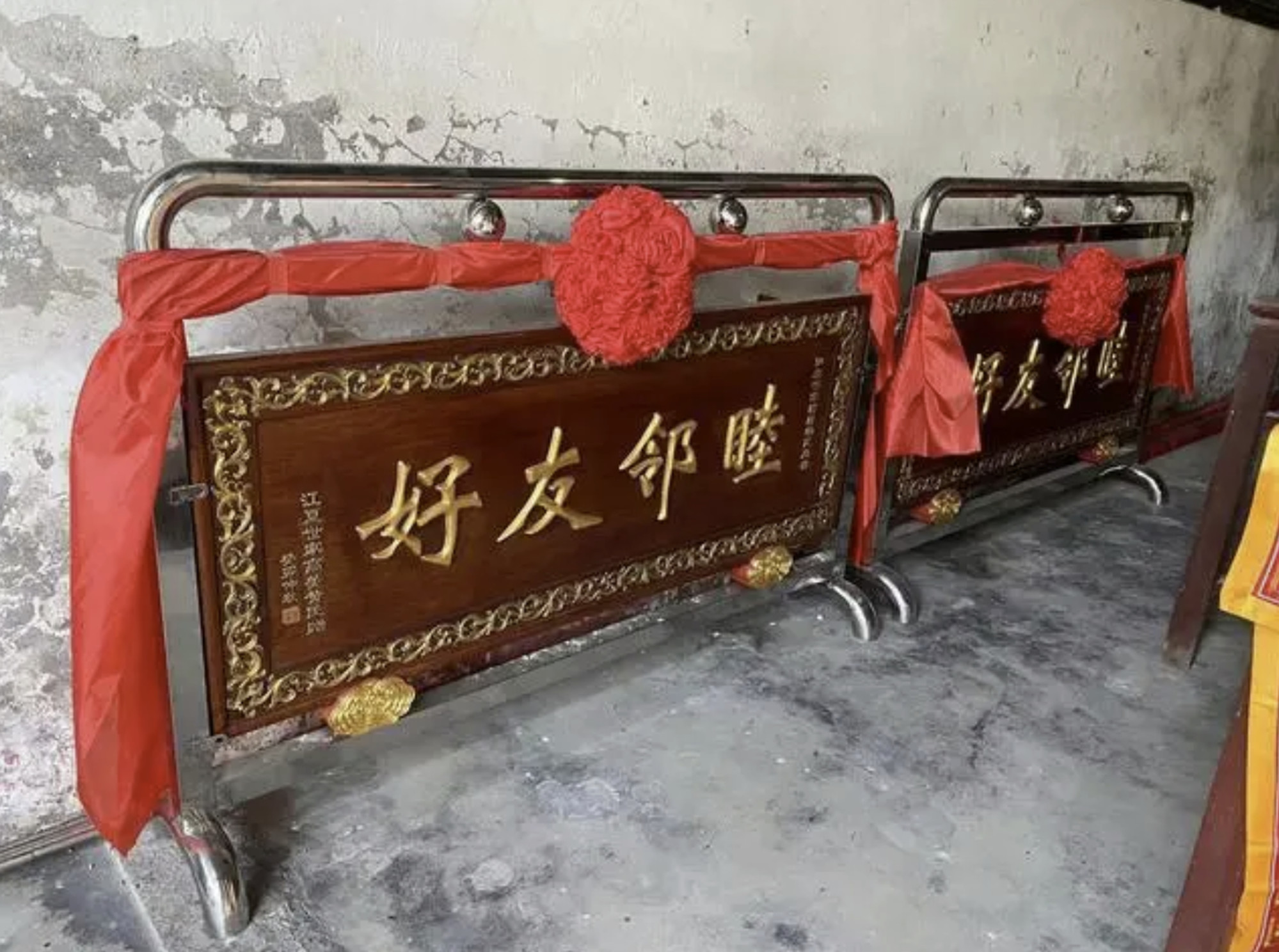
‘Romeos and Juliets’: peace talks see rival villages in China end centuries of hostility to allow intermarriages and trade
- Ancestral ban affects lives of 30,000 residents of 14 communities under 4 administrative village areas
- 2 months of meetings bring end to village rivalry and rancour
Centuries of hostility between neighbouring villages in China have been ended by peace talks which resulted in an agreement to allow intermarriage and trade.
On October 1, Chaqiao, Meidong, Meixi and Xialiu villages in Jieyang, southeastern China’s Guangdong province, simultaneously held grand ceremonies at their ancestral halls to mark an official breaking of the ice.
For more than 200 years, ancestral rules that banned intermarriages had been passed on from generation to generation, affecting the lives of 30,000 residents of the 14 communities under the four administrative village areas, according to Yangcheng Evening News.
There is no official record detailing how the roots of the feud began, but fighting over land and water is largely believed to have been the reason.

Yang Yantian, the party committee secretary of the Chaqiao village, told the mainland media outlet Jiupai News that his team received a peacemaking mission from the Jieyang government in June.
He said his predecessor had attempted to make up with neighbouring villages but failed to persuade the elders in the village, who have the power to decide community issues.
Yang and his team held a dozen meetings with 80 elders over two months, and invited prestigious intellectuals from the village to reason with residents.
A group of elders from the Chaqiao village then initiated peacemaking conversations with their counterparts from other villages.
The reconciliation led to celebrations among younger villagers.
Although people from different communities mostly go to the same secondary school and had developed friendships with each other, they were not allowed to date people from other villages.
A 34-year-old Chaqiao villager said they were allowed to conduct business with other villagers but “love and marriage were strictly banned”.
Those who managed to conquer the obstacles in their way and get married, received no blessing from villagers, and any misfortune that befell them were seen as a punishment for breaking the rules.
In one case, to avoid the ancestral curse, a bride from the Gaomei area, of which Meidong and Meixi villages are part, booked a hotel room on her wedding day so the groom from Chaqiao village could pick her up at the hotel, instead of her home to “deceive” the ancestors.
Another person from Chaqiao said he and his wife, who is from Gaomei and has been married to him for more than a decade, had to work and live outside the village to escape rebuke.
A woman from Chaqiao village, surnamed Yang, told Yangcheng Evening News that her son had engaged his girlfriend from Gaomei in September.
She said her husband had been unsupportive when the young couple began dating three years ago, and she had not dared tell other villagers, including her brother, about the engagement.

She said she “didn’t need to worry about it anymore”.
The news has shocked many young online observers and sparked heated discussions.
“I can’t believe the villagers could not marry freely until recently. They are contemporary Romeos and Juliets,” said one person on Weibo.
“Even the most conservative people had to give in to declining marriage and birth rates,” said another.
“Cooperation is the only way to mutual benefit,” said a third.

